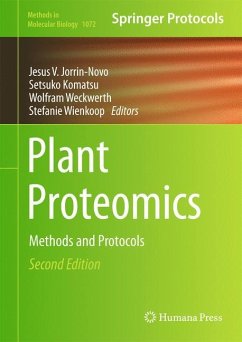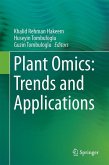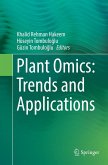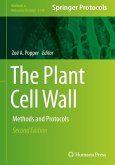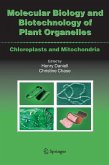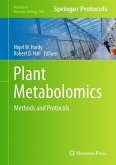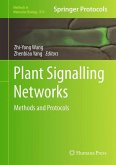Plant Proteomics: Methods and Protocols, Second Edition presents recent advances made in the field of proteomics and their application to plant biology and translational research. In recent years, improvements in techniques and protocols for high-throughput proteomics have been made at all workflow stages, from wet (sampling, tissue and cell fractionation, protein extraction, depletion, purification, separation, MS analysis, quantification) to dry lab (experimental design, algorithms for protein identification, bioinformatics tools for data analysis, databases, and repositories). Divided into nine convenient sections, chapters cover topics such as applications of gel-free, label- or label-free, imaging and targeted approaches to experimental model systems, crops and orphan species, as well as the study and analysis of PTMs, protein interactions, and specific families of proteins, and finally proteomics in translational research. Written in the successful Methods in Molecular Biology series format, chapters include introductions to their respective topics, lists of the necessary materials and reagents, step-by-step, readily reproducible protocols, and notes on troubleshooting and avoiding known pitfalls.
Authoritative and easily accessible, Plant Proteomics: Methods and Protocols, Second Edition seeks to serve both professionals and novices looking to exploit the full potential of proteomics in plant biology research.
Authoritative and easily accessible, Plant Proteomics: Methods and Protocols, Second Edition seeks to serve both professionals and novices looking to exploit the full potential of proteomics in plant biology research.

